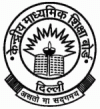(News) No CBSE International Syllabus for Schools in India
Disclaimer: This website is NOT associated with CBSE, for official website of CBSE visit - www.cbse.gov.in
No CBSE International Syllabus for Schools in India
 The
Central Board of Secondary Education (CBSE) is, at present, not thinking of
granting permission for schools in India to follow the CBSE International
Curriculum.
The
Central Board of Secondary Education (CBSE) is, at present, not thinking of
granting permission for schools in India to follow the CBSE International
Curriculum.
“It will take at least another three years,” CBSE Chairman Vineet Joshi told The
Hindu. He was here to inaugurate the SSVM World School.
Recently, the board introduced the CBSEI syllabus in West and South Asia on an
experimental basis in about 30 schools. “In the current academic year, the Board
has introduced it for classes I and IX. Next year, it will extend the same to
classes II, VI, VII and X,” he said. The complete rollout would take three
years.
“Only thereafter will CBSE take a call on offering the international syllabus to
schools within the country.” He admitted that schools in India had started
making the demand.
Explaining the reason for introducing the syllabus, he said the Board, following
feedback from parents and academics, realised that there was no point in
offering Indian geography or other social subjects to students in Oman or
Singapore. In the absence of local content, the students found it difficult to
interact with society there.
“Based on suggestions, the Board allowed flexibility in social science subjects
while retaining Maths and Science,” Mr. Joshi said.
Referring to the CBSE’s decision to make optional the Class X examination, Mr.
Joshi said a Continuous Comprehensive Evaluation (CCE) system had been evolved
to assess the all-round performance of students. “Not only writing, their
[students'] reading, analytical and application skills will be tested.
Extra-curricular activities will also have a weightage. This is because schools
have to ensure holistic development of a student. The purpose of making optional
the exam is also to broaden the purpose of education. Not confine it to
examination and score alone.”
Courtesy: The Hindu